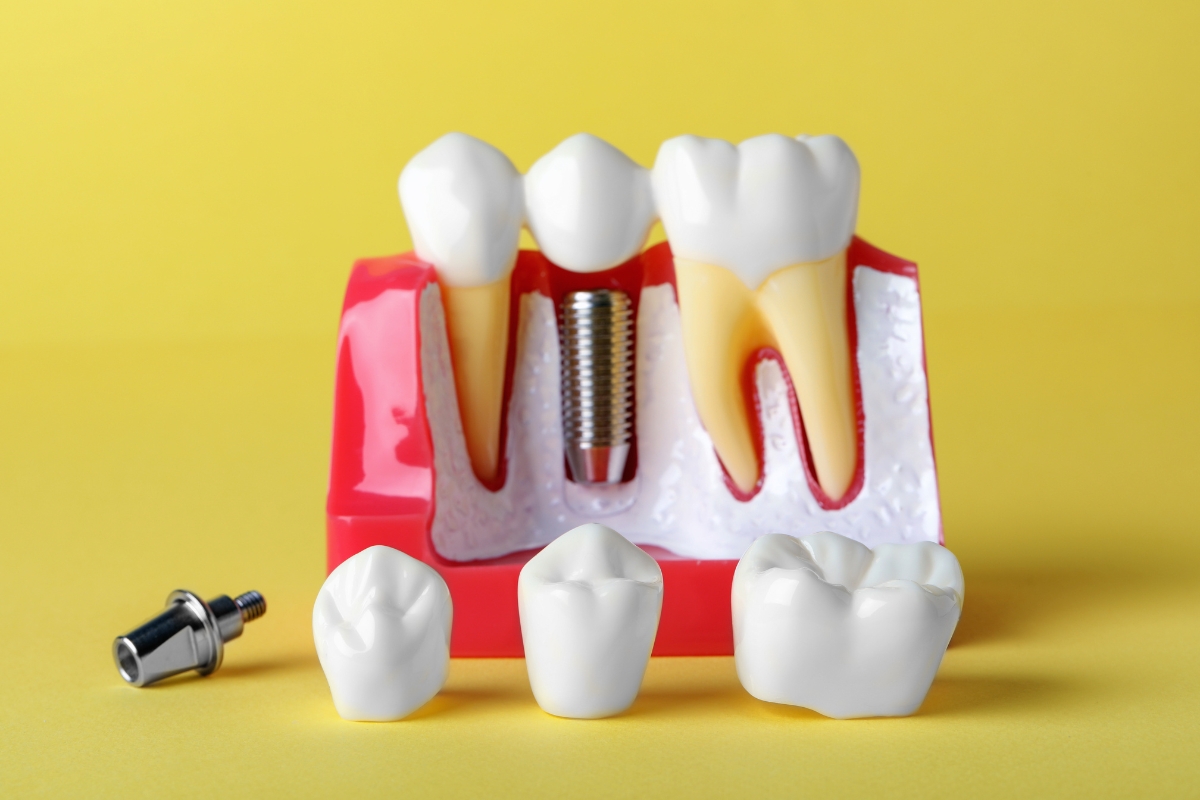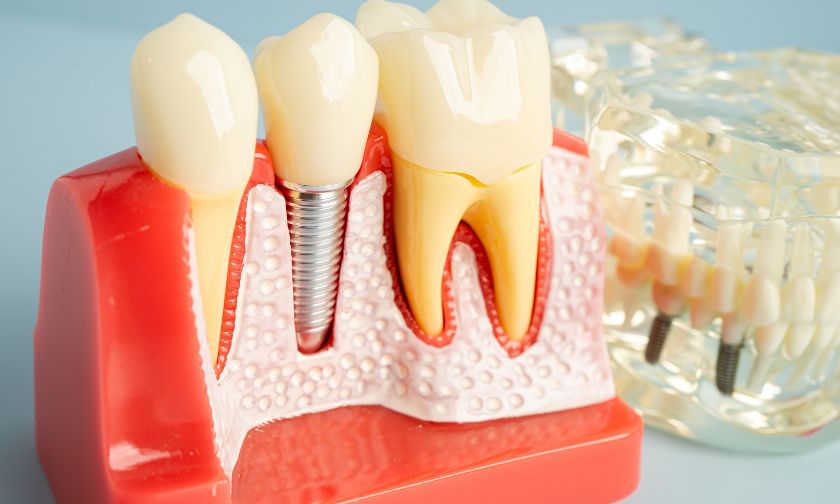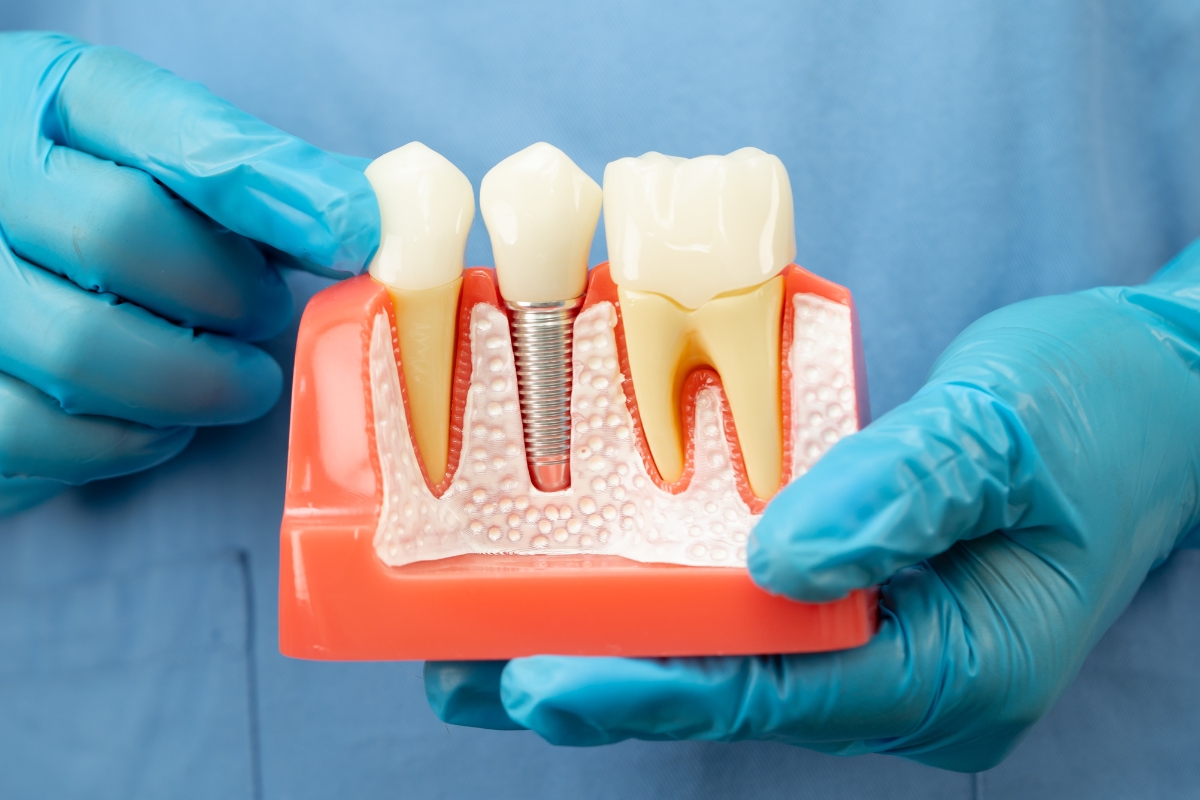
Dental implants are called the “gold standard” because they restore smiles with unmatched stability. They gained popularity due to durability, function, and natural appearance that outlasts bridges or dentures.
Surprisingly, most patients discover implants can last decades with good care and habits. This blog explains the average lifespan of implants and provides easy steps to get the most out of them.
What Are Dental Implants and Why Choose Them?
A dental implant is comprised of three components: a titanium rod, an abutment, and a crown. The titanium post osseointegrates and holds the exposed crown in place.
Unlike removable dentures, implants feel like your own teeth, and you will never be without teeth with your new smile. They provide superior stability, allow better speech, increase confidence, and improve quality of life. For the majority of patients, dental implants in Prairie Village are an investment that will last a lifetime as opposed to dentures or bridges.
Average Lifespan of Dental Implants
Implants can last 15 to 25 years with proper maintenance. Some individuals wear dental implants for a lifetime if they maintain good oral hygiene practices. The titanium implant post fuses with bone and usually remains in position for decades. The dental crown, in comparison, typically lasts 10 to 15 years before requiring replacement. Natural wear, chewing, and grinding work to decrease crown longevity compared to the implant post.
Fortunately, it is simpler to replace a deteriorated crown than the entire implant system. Studies confirm that implants succeed in over 95% of cases worldwide. Such a high success rate confirms why implants are considered highly reliable treatments.
Outcomes vary per patient depending on hygiene, lifestyle, and bone health quality. Under proper care and professional maintenance, implants often exceed patient expectations for longevity.
Factors That Influence Dental Implant Longevity
Proper oral hygiene habits greatly shape how long an implant remains in good health and function. Regular brushing and flossing can prevent infection that may shorten the life of your implant. Implant success and survival are heavily influenced by lifestyle. Tobacco smoke constricts blood vessels, blocks the healing process, and lowers the supporting implant bone. Heavy drinking, however, has the potential to damage the gums and reduce implant life in the long run.
Good nutrition will support healthy gums and bone around implants, ensuring it is long-lasting. Implant stability and functionality were considerably influenced by bone density and gum condition. Diabetes or osteoporosis affects the healing process. However, they can be safely dealt with.
Good material and modern surgery contribute to the success of dental implants. They are implanted well by professional dentists, so that there will be no risks of any trouble in the future. It makes its own contribution, but they both determine how long dental implants really last.
How to Extend the Life of Your Dental Implants
Daily oral hygiene is the foundation for protecting implants from infection and complications. Brush twice daily with a soft-bristle toothbrush to remove plaque around your implants. Floss carefully using implant-friendly floss or a water flosser to access tight spaces. Rinsing with an antimicrobial mouthwash reduces harmful bacteria that compromise gum health.
Schedule regular dental visits for your dentist to check the condition of your dental implants in Prairie Village. Regular cleanings prevent tartar buildup and identify early problems before they worsen. Protect implants from trauma by wearing a mouthguard during contact sports or grinding.
A healthy diet strengthens bone density and gums and ensures solid support for implants over time. Include foods containing calcium, lean protein, and leafy greens in your diet for optimal oral health. By following the suggested steps above regularly, you maximize the lifespan and function of implants.
Dental implants can last decades and remain one of the most reliable tooth replacement solutions. With strong hygiene routines, healthy choices, and professional care, their lifespan improves dramatically.
If you’re considering implants, consult a dentist soon to protect your long-term oral health.




